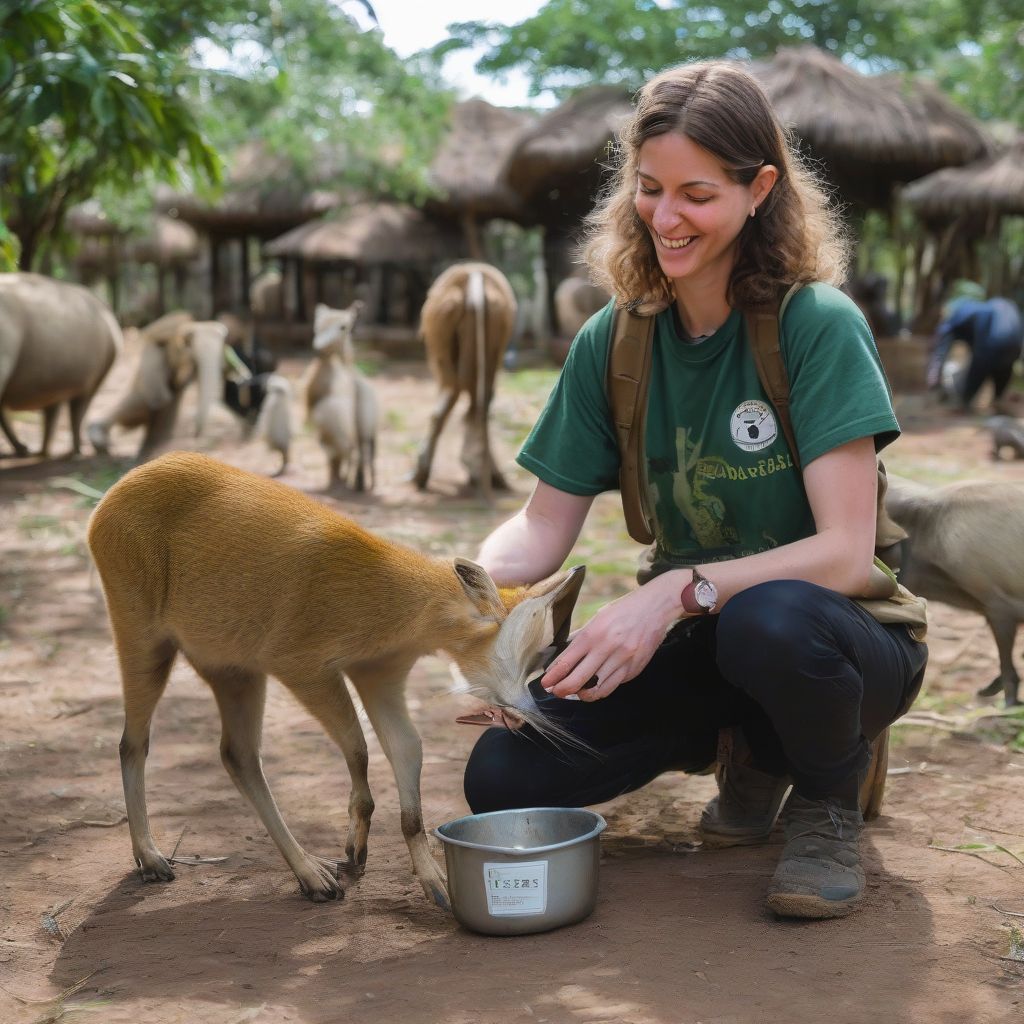Imagine yourself trekking through lush rainforests, coming face-to-face with incredible wildlife – a lifelong dream, right? Now, imagine that same dream threatened by habitat destruction, poaching, and climate change. It’s a harsh reality, but as travelers, we have a unique opportunity to become part of the solution. Instead of just experiencing nature, we can actively contribute to its preservation.
But how can we, as travelers, truly make a difference? It’s easier than you might think. Choosing responsible tour operators, minimizing your environmental impact, and supporting local conservation efforts are just a few steps towards becoming a wildlife conservation champion. Let’s dive deeper into how you can turn your next adventure into a force for good.
Choosing Responsible Travel Operators and Accommodations
One of the most impactful decisions you can make is selecting tour operators and accommodations deeply committed to conservation. Look for certifications like:
- World Cetacean Alliance: Ensures responsible whale and dolphin watching tours.
- Global Sustainable Tourism Council (GSTC): Recognizes sustainable tourism practices worldwide.
- Rainforest Alliance Certified: Identifies businesses committed to sustainable agriculture and forest conservation.
These certifications demonstrate a commitment to minimizing environmental impact, supporting local communities, and promoting ethical wildlife interactions.
Minimizing Your Environmental Footprint
Traveling responsibly goes beyond choosing eco-friendly options; it’s about minimizing your overall footprint. Here are some key practices:
- Pack Light: Lighter luggage means less fuel consumption during transportation.
- Reduce Plastic Consumption: Carry a reusable water bottle, say no to single-use plastics, and bring your own toiletries.
- Conserve Water and Energy: Be mindful of water and electricity usage, especially in water-scarce regions.
- Support Local: Opt for locally owned businesses and restaurants using fresh, local ingredients.
- Offset Your Carbon Emissions: Consider carbon offsetting programs to compensate for your travel’s environmental impact.
Engaging in Responsible Wildlife Interactions
Encountering wildlife in their natural habitat is a privilege that comes with responsibilities. Follow these guidelines:
- Observe from a Distance: Use binoculars or zoom lenses for a closer look without disturbing animals.
- Never Feed Wildlife: Feeding can alter natural behaviors, create dependence on humans, and lead to health problems.
- Respect Breeding and Nesting Sites: Keep a safe distance and avoid disturbing animals during these sensitive periods.
- Avoid Riding Elephants or Interacting with Captive Wildlife: These activities often involve animal cruelty and exploitation.
Supporting Local Conservation Efforts
Directly contributing to local conservation initiatives can make a significant difference:
- Volunteer Your Time and Skills: Participate in wildlife monitoring, habitat restoration, or community education programs.
- Donate to Reputable Organizations: Support NGOs working on wildlife conservation and anti-poaching efforts.
- Spread Awareness: Share your experiences and knowledge with fellow travelers and on social media, encouraging responsible tourism.
Choosing Sustainable Souvenirs
Bringing home souvenirs is tempting, but avoid items that contribute to wildlife exploitation:
- Say No to Products Made from Endangered Species: This includes ivory, tortoise shells, and coral jewelry.
- Opt for Locally Made Crafts: Support local artisans and communities by purchasing ethically sourced handicrafts.
 Traveler Volunteering at Wildlife Sanctuary
Traveler Volunteering at Wildlife Sanctuary
Embracing Ethical Photography
Capturing stunning wildlife photos is a highlight for many travelers. Remember:
- Prioritize Animal Welfare Over the Perfect Shot: Never bait, chase, or harass animals for a photo opportunity.
- Use Natural Light: Flash photography can startle wildlife and disrupt their natural behaviors.
- Share Your Photos Responsibly: Educate others about conservation through captivating images and stories.
Staying Informed and Educated
Continuously learning about wildlife conservation is essential:
- Research Your Destination: Understand the local conservation challenges and responsible tourism practices.
- Follow Reputable Conservation Organizations: Stay updated on conservation efforts and initiatives.
- Educate Yourself on Wildlife Laws and Regulations: Be aware of the legal implications of interacting with wildlife.
Conclusion
As travelers, we hold immense power to protect the planet’s precious biodiversity. By choosing responsible tour operators, minimizing our impact, engaging in ethical wildlife interactions, and supporting local conservation, our adventures can become catalysts for positive change. Let’s embrace the responsibility that comes with exploring our beautiful world and become ambassadors for wildlife conservation. Share your stories, inspire others, and contribute to a future where both wildlife and humans thrive. Together, we can make a difference, one journey at a time. What steps will you take on your next adventure to champion wildlife conservation?
[amazon bestseller=”Sustainable Travel”]
